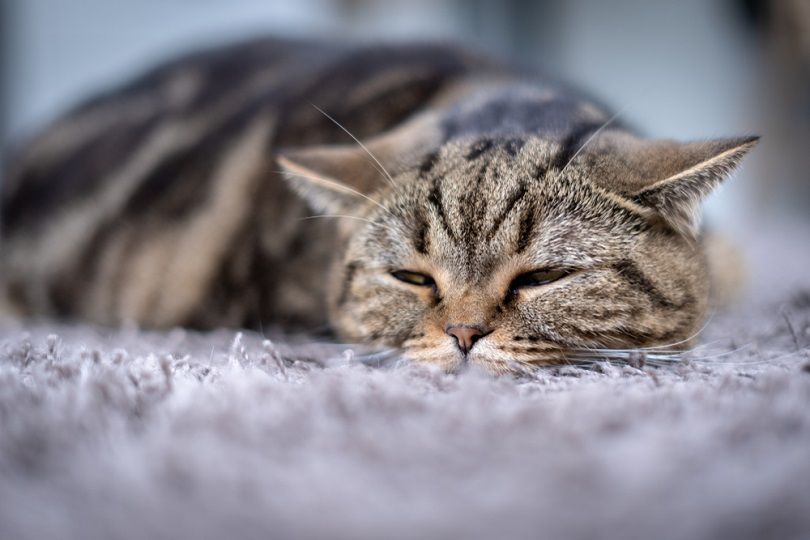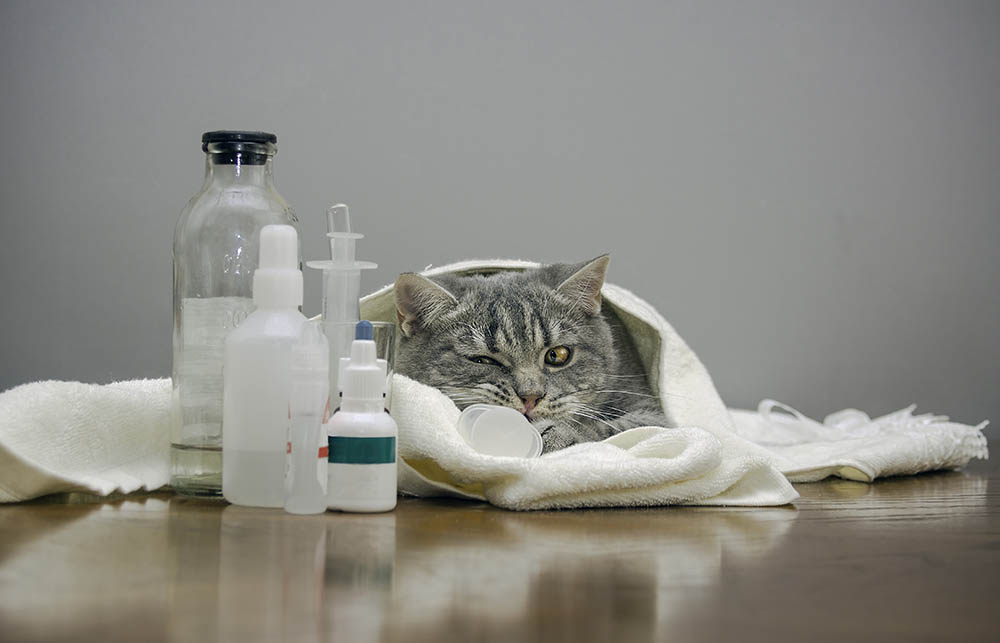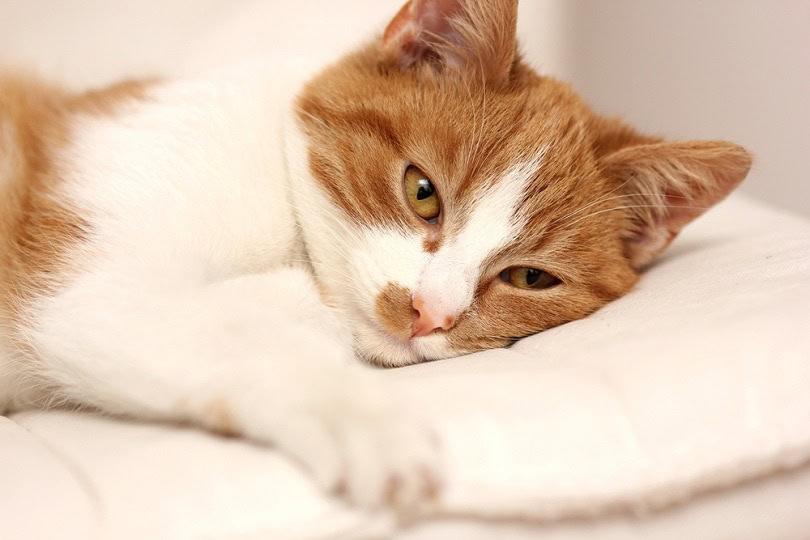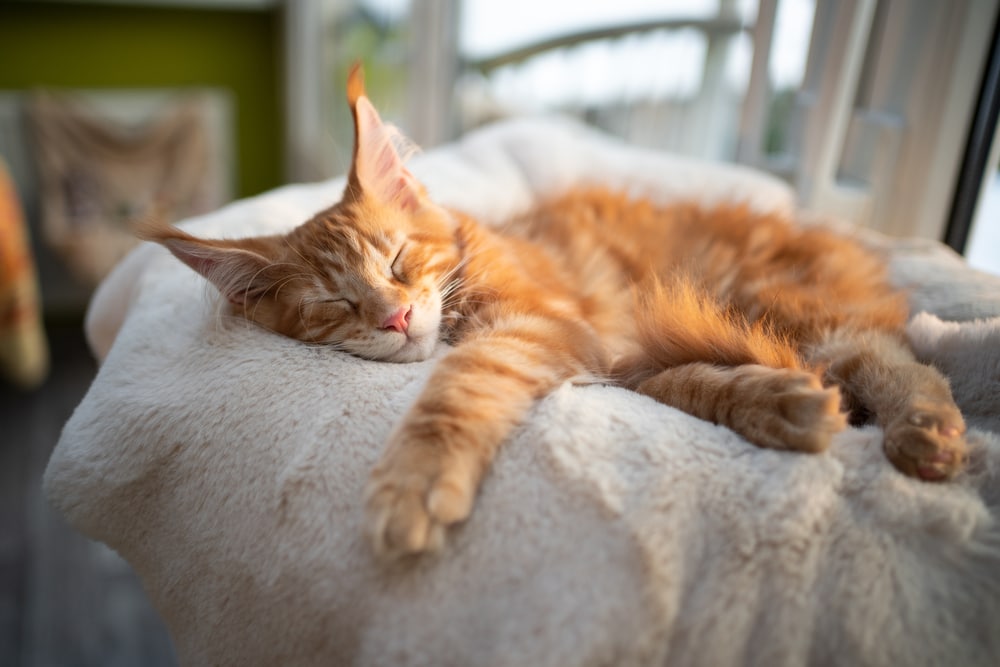VET APPROVED

The information is current and up-to-date in accordance with the latest veterinarian research.
Learn more »Click to Skip Ahead
People are allergic to many different things, including pollen, dander, fragrance, and even peanuts. Cats can also suffer allergies from many sources, including pollen, dust, mold, flea saliva and even food. Since cats and humans share many of the same allergies, it’s natural to ask if cats can be allergic to humans. The short answer is yes, it’s possible, but keep reading while we discuss how likely it is as well as some alternative things that can make a cat seem like it’s allergic to you to help you stay better informed.
Can Cats Be Allergic to Humans?
Dander is similar to dandruff, and it’s essentially tiny pieces of dead skin that fall off the body of humans, cats, dogs, and many other animals, especially those with hair or fur. While many humans suffer from allergy symptoms when they are near a cat or dog due to dander and saliva, there are not many documented cases of cats suffering from allergy signs caused by human dander, though many experts agree it is possible, as are allergies to canine dander.1

What Are the Signs of a Cat Suffering from Allergies?
Many people are surprised to learn the signs of a cat suffering from allergies are not always that similar to those of a human. Your cat will likely have itchy, irritated skin, leading to excessive licking and scratching, as well as skin lesions. In some cases, cats can also have respiratory problems, such as sneezing, coughing, wheezing, and eye and nasal discharge. And least common are digestive signs, such as vomiting, flatulence and diarrhea.
What Do I Do If I Think My Cat Is Allergic to Me?
The best thing you can do for your pet if you think they’re allergic to you is to take them to the vet. Your vet can run the correct test to give you a better idea about what’s causing the allergic signs, by ruling out some of the common causes of skin disease in cats, such as parasites and infections, before focusing on allergies. Some of the common allergies in cats can be due to flea saliva or environmental allergens, such as pollen, weeds, trees, molds, and even human dander, as well as food allergens. Reaching a diagnosis promptly and starting appropriate treatment will put your cat on the fastest track to recovery, as well as manage their signs going forward.

Why Does My Cat Have Allergy Signs If They’re Not Allergic to Human Dander?
Cats are extremely sensitive, and if they’re displaying signs of irritation or an allergic response when you are around, it could be a commercial product behind the signs your cat is experiencing. There is a chance the irritation is caused by your perfume, deodorant, shampoo, aftershave, body wash, or other product other than your skin, and putting an end to these products may quickly help your pet return to normal. Any accidental exposure to a fragrance or chemical is extremely serious because it may lead to breathing difficulties, drooling or sneezing.
Treating Cat Allergies
Your veterinarian may recommend a blood test or skin test on your pet, as well as a referral to a veterinary dermatologist to get a reliable diagnosis of what is triggering your pet’s allergy signs. If it is a true allergy, and other causes of skin irritation have been ruled out, the vet may prescribe various treatments, like topical drops, systemic anti-itch medications, antihistamines, or a medicated shampoo, to make your pet feel better. If your vet is able to confirm an allergy to human dander through intradermal testing, you may also need to find ways to put more space between you, so you don’t trigger allergies. Luckily, because humans shower regularly and cover their bodies with clothes, exposure to human dander is minimized.
Summary
Your cat may be suffering from an allergy to human dander, but it is rarely reported, and allergies are usually caused by several allergens at the same time, with human dander potentially being just one of them. It’s more likely that your cat is suffering from food or environmental allergies, or is reacting to a product you are using, like perfume or other products that contain fragrances like shampoo and deodorant, as some cats can have strong reactions to fragrances, and some can even cause respiratory signs if the cat found themselves too close when you applied them. We recommend setting up an appointment with the vet, who will perform skin investigations and may recommend allergy testing in order to quickly remove any uncertainty about your pet’s condition.
We hope you have enjoyed reading over this short guide and found the answers you need. If we have set your mind at ease, please share our look into if cats can be allergic to humans on Facebook and Twitter.
See also:
- Can a Cat Be Allergic to Dogs? (Vet Answer)
- How To Get Rid of Cat Dander (9 Proven Methods)
- 11 Best Scratching Posts for Kittens – Reviews & Top Picks!
Featured Image Credit: natata, Shutterstock












